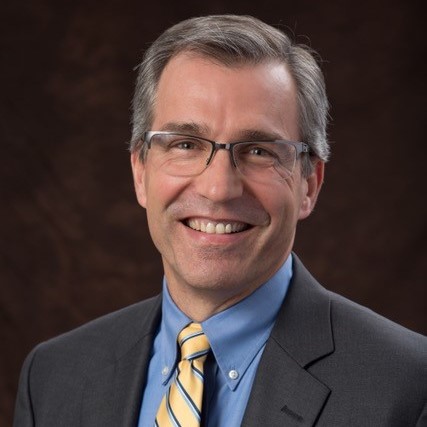We must engage in this work every day

Sunday, March 20, 2022, marked the vernal equinox, the day we celebrate the beginning of spring. It is a time of various religious and secular festivals, a time when we begin to delight in the possibilities of new life. And in some ways, it seems almost trite considering all that is happening in the world.
That said, it seems an appropriate day to celebrate the new life that is emerging within ACPE. In May 2019, ACPE’s Board of Directors approved the formation of the Anti-Bias Workgroup. For almost three years, that group has guided, challenged, reshaped, and imagined with our association what an anti-bias professional community might be. Last year’s annual conference marked an important first collective step in that journey, with over 600 members participating in plenaries and workshops led by Crossroads Anti-Racism Organizing and Training. For many, this was a mix of enlightening, uncomfortable, challenging, and inspiring, often all at once!
This year, we continue this work alongside colleagues from the Association of Professional Chaplains (APC) with a Joint Annual Conference. Plenary highlights include the following speakers:
Dr. Linda James Myers, an internationally recognized thought leader, author, and scholar whose Africological perspective in the production of psychological knowledge places the wisdom tradition of African deep thought at the forefront of the paradigm shift supported by contemporary science and converging with Eastern philosophies. Her work, Optimal Conceptual Theory, deepens our understanding of the higher stages of human development and how to achieve them, providing insight into the roots of racism, sexism, classism, and their eradication. In her plenary, “Illumination of the Soul Being Becoming: Optimal Psychology’s Africological View,” Dr. Myers will focus on how optimal psychology serves to ensure anti-bias praxis in a social context riddled with biases of all kinds, including a deplorable 400-year history of dehumanization and systemic racism.
Carol Wayne White, Presidential Professor of Philosophy of Religion at Bucknell University, will present “The Turn to Wonder: Sacred Humanity and the Cultivation of Aesthetical-Ethical Practices,” exploring the concept of wonder as one model for addressing anti-bias practices in spiritual care and education. Dr. White specializes in Poststructuralist Philosophies, Process Thought, Religious Naturalism, Science and Religion, and Critical Theory and Religion. She has published numerous essays in philosophy of religion and on religious naturalism.
Our third plenary will be a joint effort, led by Robyn Henderson-Espinoza, Ph.D. and Erin Law. Dr. Henderson-Espinoza has been described in a myriad of ways: a scholar-activist, scholar-leader, thought-leader, teacher, public theologian, ethicist, poet of moral reason, and word artist. Among these ways of describing Dr. Robyn, they are also a visionary thinker who has spent two decades working in the borderlands of church, academy, and movements seeking to not only disrupt but dismantle supremacy culture and help steward the logic of liberation as a Transqueer Latinx. They enflesh a deep hope of collaborating in these borderland spaces where their work seeks to contribute to the ongoing work of collective liberation. Erin Law is a multidisciplinary artist, cultural somatics movement educator, and bodyworker living on Cherokee, Shawnee, and Yuchi Land in so-called Nashville, Tennessee. Erin spearheads various creative projects at the intersection of somatic embodiment, filmmaking, cultural and identity studies, social healing, queer theory, and performance art. She facilitates and engages in practices, analysis, advocacy, and activism to contribute to the transformation and alchemy of systemic oppression, toward the blossoming of a more resilient and whole humanity. Their presentation is titled “Imagining Another Possible World: Composting Supremacy Culture through Emerging Practices of Ethical Care,” through which they invite participants to consider our current context and the ways that we have all domesticated polarization over stewarding a more generous humanity.
Our final plenary will jointly feature ACPE and APC professionals exploring where we go from here, a vital conversation considering our understanding that this work cannot be accomplished in a few sessions, in a few hours, among a few people. Ultimately it is about the way we live and how we work together to transform our current practices, pedagogies, institutions, and communities.
The vernal equinox is not simply the changing of seasons. It marks a tilting of the earth’s axis to a point where the day is balanced: twelve hours of night, twelve hours of day. This moment occurs twice each year. Our anti-bias work cannot simply be a once-a-year effort. If we want to bring justice, equity, diversity, and inclusion to its fullness in ACPE, we must engage in this work every day. We hope you will recommit yourself to this shared effort by joining us for our annual meeting in May. We all have room to grow in our efforts to live lives that are anti-bias to the core. While we wait to take our next steps in person with one another, let’s gather online to continue the work to which we are called at this moment in our history.
Trace Haythorn is the Executive Director of ACPE and can be reached at Trace.Haythorn@acpe.edu
